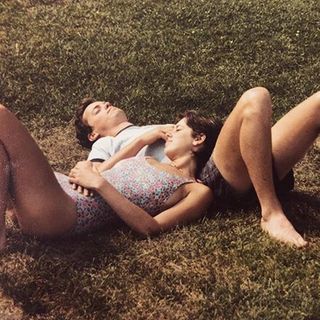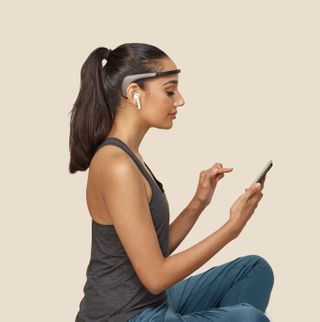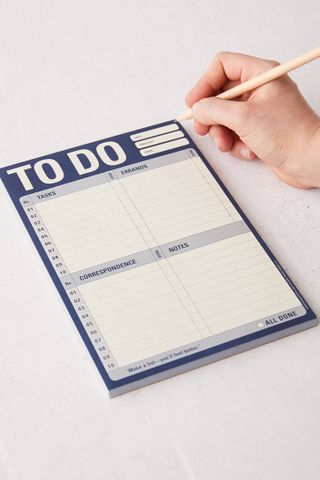How to Fall Asleep in 5 Minutes Flat


Sleep statistics tell us that almost 80% of Americans are underslept—and taking too long to doze off is among the top sleep issues reported. According to Sujay Kansagra, MD, the resident sleep health expert at Mattress Firm and director of Duke’s Pediatrics Neurology Sleep Medicine Program, most adults who are receiving the average recommended seven to nine hours should fall asleep within five to 15 minutes. Folks who take much longer than that could be struggling with a sleep disorder or derailing their ability to nod off in a timely manner with caffeine, exercise, or electronics before bed.
However, Chris Winter, MD, a board-certified neurologist and sleep specialist, says that stress and anxiety are the most widespread factors keeping people up at night. Having a hard time falling asleep at night is extremely common, but luckily, there are a few doctor-approved techniques for helping you drift off faster and get in more hours overall. It's important to note, however, that falling asleep in five minutes is about the fastest you should aim for: According to Kansagra, falling asleep any quicker than that is a sign of exhaustion, so if you're conking out immediately, that's actually a bad thing.
Now, onto our expert tips. Keep scrolling for five easy, helpful ways to fall asleep faster.
1. Embrace meditation
First, it's important to reorient your perspective on the moments (or hours) before you're able to fully fall asleep. That time isn't wasted. "Resting is not failed sleep," Winter emphasizes. "That's why I hate the advice, 'If you can't fall asleep in 10 to 15 minutes, get up and go do something.' Why? Resting is very beneficial to the body. Why put some arbitrary time deadline on your sleep? Damn, that's just more anxiety!"
Resting mindfully, through meditation, can help you get the most out of the time that you spend chilling if not fully asleep; it can even help you in your quest to doze off. As Winter explains, "Learning to relax and meditate can be helpful in several ways. First, the lowered brain activity makes it more likely to fall asleep. Second, even if you don't fall asleep, that mental state is very cognitively and physically restorative."
Winter recommends a meditation tool called Muse to many of his clients. It's a headset device that helps one "practice and learn the individual technique that works best for them to quiet their mind," says Winter. "So then later, when they are in bed, they know exactly what to do to quiet their mind confidently and quickly. It's an amazing tool to help people realize that sleep is a skill you can work on and improve."
2. Make a to-do list earlier in the day
"This technique is for those that mentally work through their list of pending responsibilities before bed," says Kansagra. "In our fast-paced world, sometimes lying in bed is the first time you have to actually think about what's on this list." Freaking out over everything you have to do the next day right before sleep can screw up your ability to relax and fall into dream world.
So try creating a written list of tasks before you crawl into bed. You might even try penning down any worries or anxieties you're experiencing. That way, you can get it all out before those pre-sleep moments and prevent yourself from thinking about it excessively just before trying to drift off.
3. Take a hot shower at night
Are you a morning-shower person? Try switching to night showers. "Our body temperature drops when we fall asleep," Kansagra explains. "Taking a hot nighttime shower just before bed artificially raises the body temperature. The subsequent fast drop can make it easier to fall asleep."
Aim to be in the shower no longer than 15 minutes to ensure that your body is relaxed and not energized by the excessive heat (just under 104ºF is the sweet spot for a pre-bed shower). For maximum sleepytime vibes, try dropping a bit of lavender essential oil on your shower floor for some soothing aromatherapy.
4. Avoid bright electronics before sleeping
It's hard to remove TVs, smartphones, and computers from your before-bed routine, but sleep experts agree it's really important. "The brain decreases its natural sleep hormone, melatonin, when exposed to bright light at night," says Kansagra. "So trying to unplug for an hour before bed to help signal to your body that it is time for sleep."
5. Don't try so damn hard
"The problem with 'trying' to fall asleep is the 'try,'" Winter says. How so? "When we apply the psychological overlay of stress onto any endeavor, our anxiety can create increased arousal making it hard to relax."
"It sounds counterintuitive," adds Kansagra, "but for those that find it difficult to sleep because they keep worrying about not falling asleep, do the opposite. Instead of worrying about falling asleep, think about staying awake instead. This often lessens anxiety and gives your mind a chance to relax enough to fall asleep. It’s a technique known as paradoxical intent."
Next: Don't miss eight ways to get deeper sleep.
Disclaimer
This article is provided for informational purposes only and is not intended to be used in the place of advice of your physician or other medical professionals. You should always consult with your doctor or healthcare provider first with any health-related questions.

Who's your beauty icon?
Tie among Linda Rodin, Hari Nef, and David Bowie.
Who are your 5 favorite people to follow on Instagram?
@petracollins @katiejanehughes @alwaysjudging @bonnyrebecca @hotdudesreading
What's the beauty essential you can’t live without?
If I have some brow gel and Sisley's Phyto-Lip Twist, I'm good to go forever.
What's your desert island album?
Death Cab for Cutie's Transatlanticism
What's your favorite Byrdie.com story?
Game of Thrones's Nathalie Emmanuel looks so achingly beautiful in our feature with her that I think it's gonna have to be that!




